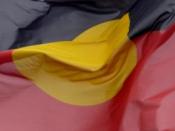Recognition Of Aboriginal Customary Law 1.0 Consideration of Basic Questions On the 9th February 1977, the then Federal Attorney-General, Mr RJ Ellicott QC, referred to the Australian Law Reform commission question: Whether it would be desirable to apply either in whole or in part Aboriginal customary law to Aboriginies, either generally or in particular areas or to those living in tribal conditions only.
The Terms of Reference went on to specify particular questions ? namely, whether existing courts should be able to apply Aboriginal customary law to Aboriginies, and whether Aboriginal communities should have the power to apply their customary laws and practices in the punishment and rehabilitation of Aboriginies. These questions are not new. One hundred and forty years earlier, the British House of Commons Select Committee on Aboriginies had stated that to require from Aboriginies ?The observation of our laws would be absurd and to punish their non-observance of them by severe penalties would be palpably unjust?.
But these views were not reflected in the actual recommendations of the House of Commons Select Committee, nor in subsequent policy decisions.
Indeed in the same year, the Colonial Office had directed the governor of New South Wales to ensure that all Aboriginies within his jurisdiction were to be treated as British subjects. Aboriginies and non-Aboriginies were to be governed by the one, introduced, law.
?I would submit, therefore, that it is necessary from the moment the Aboriginies of this country are declared British subjects they should, as far as possible, be taught that the British laws are to supersede their own, so that any native, who is suffering under their own customs, may have the power of an appeal to those of Great Britain, or, to put this in it?s true light, that all authorised persons should in all instances...


